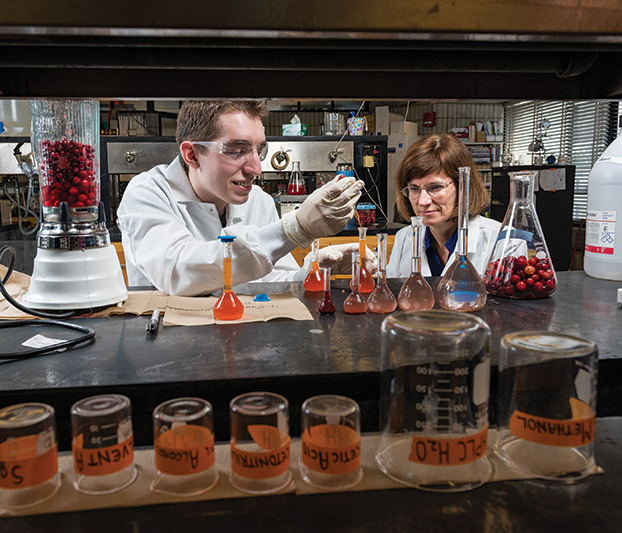The University of Massachusetts system was awarded a record 65 U.S. patents in FY2015 and earned $34 million in licensing income. This is an increase of $3 million from FY2014, when the most recent rankings for highest income derived from academic research put UMass 14th nationally and 6th among all public universities.
The patents granted in FY2015 came from research in a diverse field of academic disciplines ranging from the life sciences to agriculture to plastics engineering.
“The quest to create and transmit knowledge is at the core of our mission as a research university—and research and innovation also plays a critical role for our state and will determine our fortunes as we compete in the global economy,” said President Marty Meehan.

UMass Amherst engineering professor Aura Ganz has designed an electronic indoor navigation system, or “seeing-eye directory,” for the blind and visually impaired called PERCEPT that employs a smartphone app to detect NFC (near-field communication) tagged landmarks. The project was funded in part by the Massachusetts Bay Transit Authority (MBTA) and piloted at Arlington Station in Boston in 2015.
Analysis of “wet” materials like biological tissues is often chemically messy. Robyn Hannigan, dean of the School for the Environment at UMass Boston, is commercializing a transfer device she developed that allows for cryogenic (extreme cold) sampling of materials by laser ablation and delivery of these cold particles to a mass analyzer, allowing for accurate measurements in samples that formerly required time and the consumption of chemicals to prepare.
UMass Dartmouth biochemistry professor Catherine Neto’s latest research has found that feeding cranberry extracts to mice with colon cancer resulted in diminished size and number of tumors. As part of the UMass President’s Science and Technology Initiative grant, UMass Dartmouth established the Cranberry Health Research Center, where Dr. Neto (pictured above) is working to isolate individual components of the cranberry that are responsible for its anti-cancer properties.
“As the only Massachusetts research campus south of Boston, UMass Dartmouth plays a critical role in attracting, developing and retaining innovation economy talent for the region,” said Anthony R. Sapienza, president of New Bedford’s Joseph Abboud Apparel Corp. “College of Engineering students and faculty work with us to improve our manufacturing processes.”
UMass Lowell computer science professor Holly Yanco is developing a better way for first responders to communicate with each other and work with robots in the field. Robots create a 3-D map as they move through the site, able to go into disaster zones that are too dangerous for humans. First responders and the robots will be fitted with Google Glass, so information is quickly and easily shared on the ground without the need for a command center or “middle man.”
Two groups of researchers at UMass Medical School have identified genes that disable HIV-1, suggesting a promising new strategy for fighting the virus that causes AIDS. New drugs developed by the scientists are shown to reduce the infectivity of HIV-1 virions by more than 100 percent.